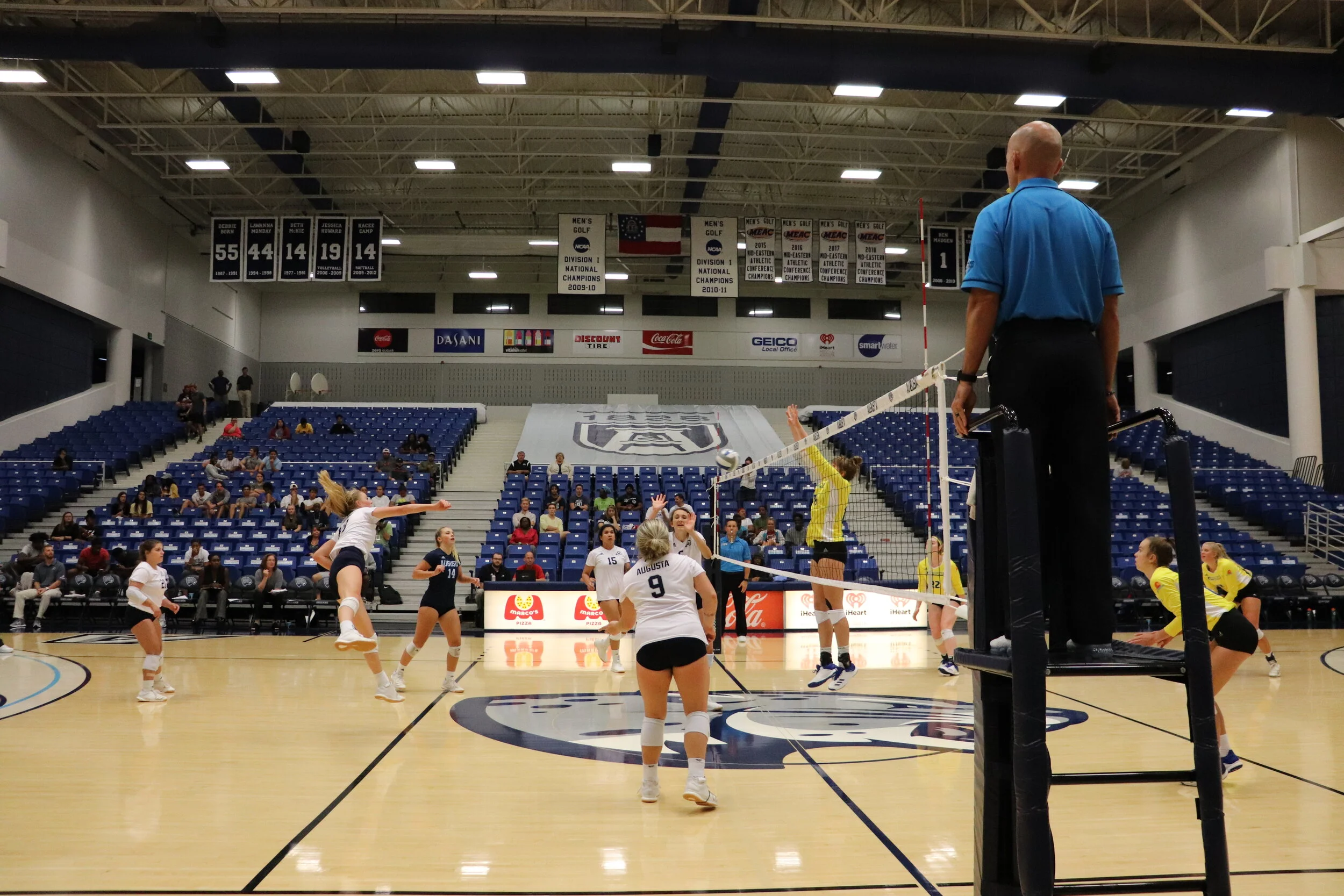AU students share how they celebrate Ramadan
By Christian Osborne | Staff writer
Ramadan is an Islamic holiday celebrated in the ninth month of the Islamic calendar dedicated to prayer, reflection and fasting. This year, Ramadan occurred April 12 to May 12. It is followed by Eid al Fitr, which took place on May 13. Eid al Fitr marked the end of Ramadan.
Muslim students at Augusta University discussed how they observed Ramadan and celebrated Eid.
“Ramadan is a holy month in the Islamic calendar that is signified by a crescent moon,” said Zak Aden, a freshman kinesiology major.
Arika Shaikh, a first-year medical student at MCG, remarked on the significance of Ramadan.
“It was during this month that the first chapters of our holy book, the Quran, were revealed to our beloved Prophet Muhammad (SAW),” Shaikh said.
Most people identify Ramadan by its strict fasting rituals. During Ramadan, Muslims do not eat during daylight hours. Meals are eaten before dawn (suhoor or sehri) and after sunset (iftar).
“Ramadan celebrations consist of fasting throughout the day from sunrise to sunset, refraining from doing bad things and praying salat,” Aden said. “Most importantly is to give thanks to Allah (SWT). At night you break your fast with a big meal called iftar which you break with your family.”
COVID-19 restrictions have changed the dynamic of Ramadan for many peoples within the Islamic community.
“With social isolation and protocols, mosques closed down for safety reasons and family members prayed Taraweeh prayers in their homes,” Shaikh said. “Iftar gatherings, where family and friends would end their fast together, were not done due to the quarantine.”
She added that although last year isolation posed obstacles for fellowship during Ramadan, Shaikh noticed “there was more intimate time and space to really reflect on our spirituality.”
Due to the dedication it takes to participate in the Ramadan celebration, some think the traditions are too restrictive.
“One of the common misconceptions is that we are starving ourselves or that it is hard,” said Hasia Safi, first-year graduate student in counselor education. “We are not starving ourselves; we are gaining consciousness of God and that feeds our soul. It is only starving if an individual does not have faith.”
During Eid, Muslims end their month-long fasting, say prayers, give alms to the poor and hold a dinner with family and friends. In some Middle Eastern countries, presents are exchanged and new clothes are purchased. Visitors are offered coffee, tea and dates. In some cases, families take their vacation during Eid.
“People go to Eid prayer in the morning wearing fancy new clothes, then go out for brunch and visit each other throughout the day,” said Asma Daoudi, who just finished her doctor-of-medicine degree from MCG. “The younger generations will plan hangouts, and that’s really it. This year, I was fortunate to be celebrating two special occasions on the same day: Eid and my M.D. hooding ceremony. It was the best Eid gift I could ask for.”
A second Eid (al Adha) will take place July 19-23. Eid al Adha commemorates Abraham’s sacrifice of his son to God.
Contact Christian Osborne at NEOSBORNE@augusta.edu.



